You want to become a doctor, but you’re unsure how to do it. You might be thinking about doing some research or volunteering at a local hospital, but what will help you get there? If you need convincing that becoming a doctor is the right career choice for you and your future, look no further. A doctor’s resume example and writing guide can help you get on the right foot. With so many different types of careers out there, it can be challenging to know where to begin when creating your resume. But with all the information available on the Internet, it should not be hard! That said, let’s look at some of the most common resume formats and advise on how best to tailor them for your situation.
Doctor Resume Example

Download This Doctor Resume as PDF
Cardiologist Resume Example
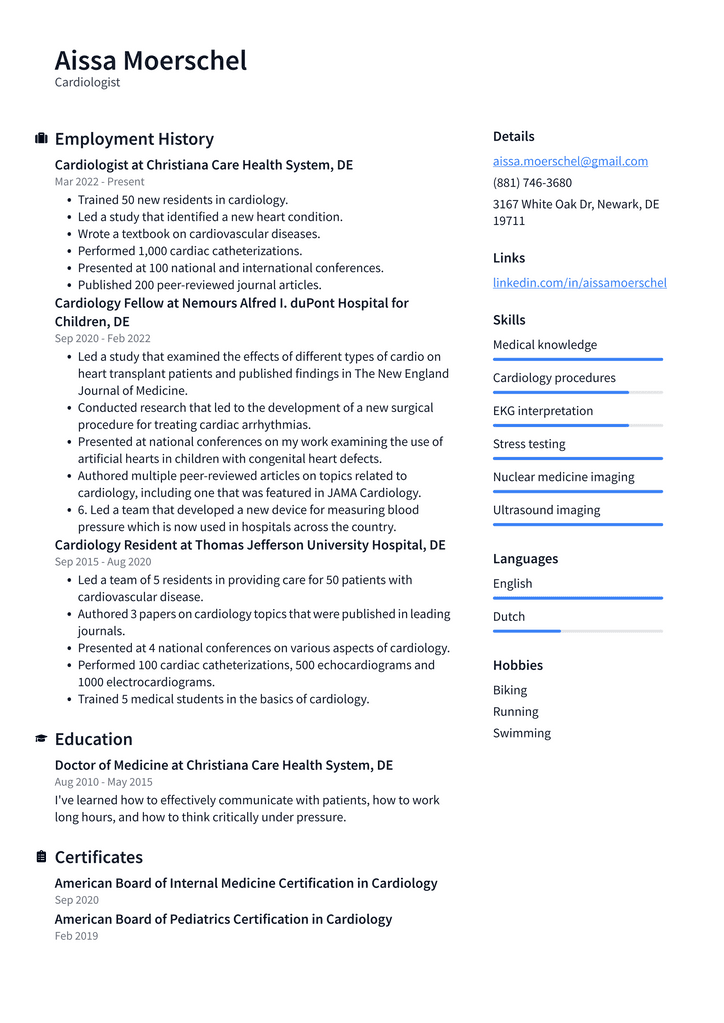
Download This Cardiologist Resume as PDF
Anesthesiologist Resume Example
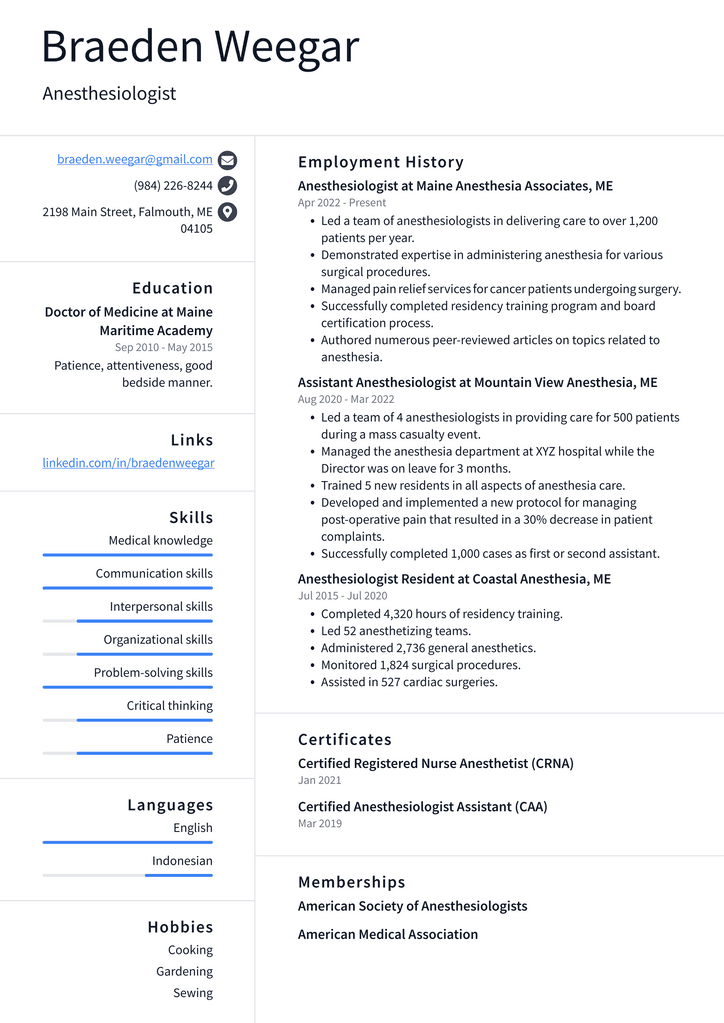
Download This Anesthesiologist Resume as PDF
Surgeon Resume Example
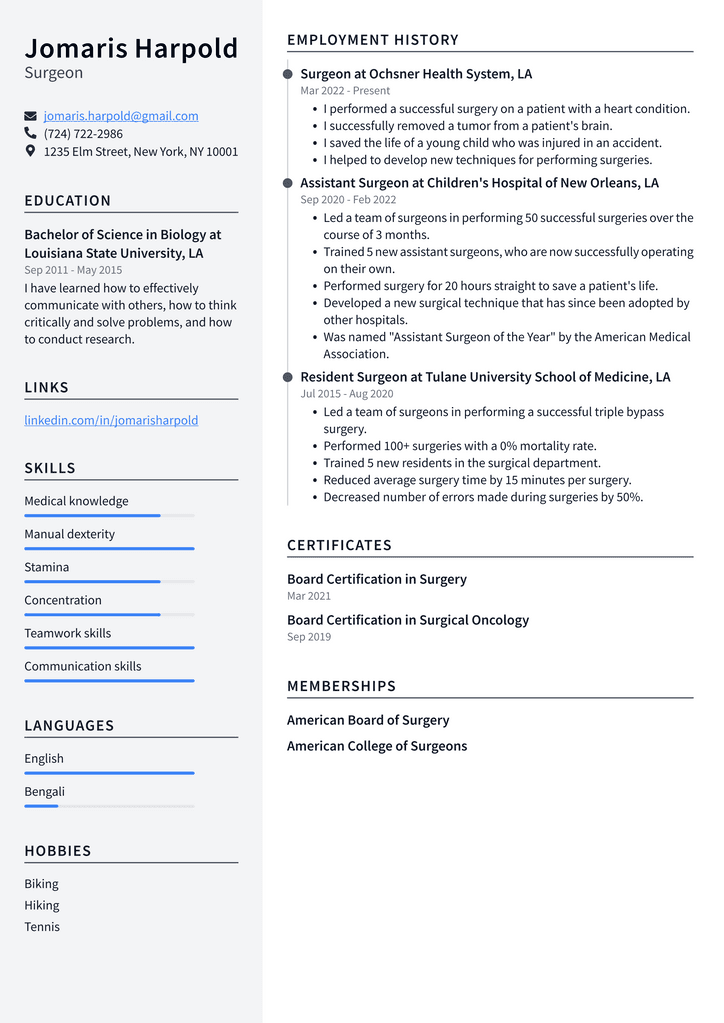
Download This Surgeon Resume as PDF
Gynecologist Resume Example
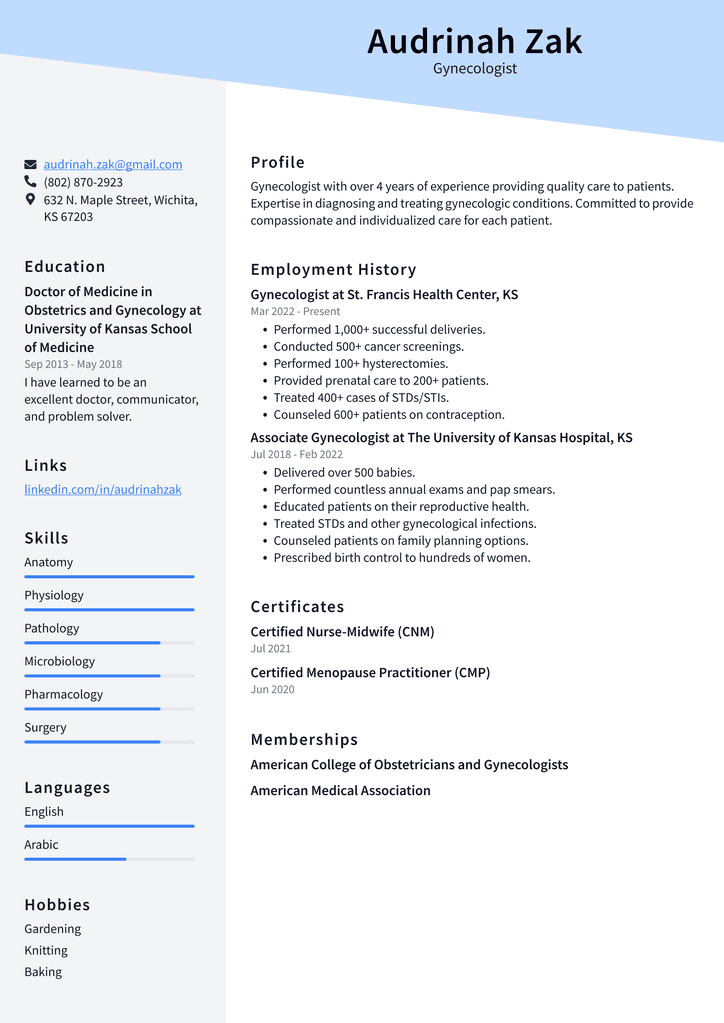
Download This Gynecologist Resume as PDF
Radiologist Resume Example
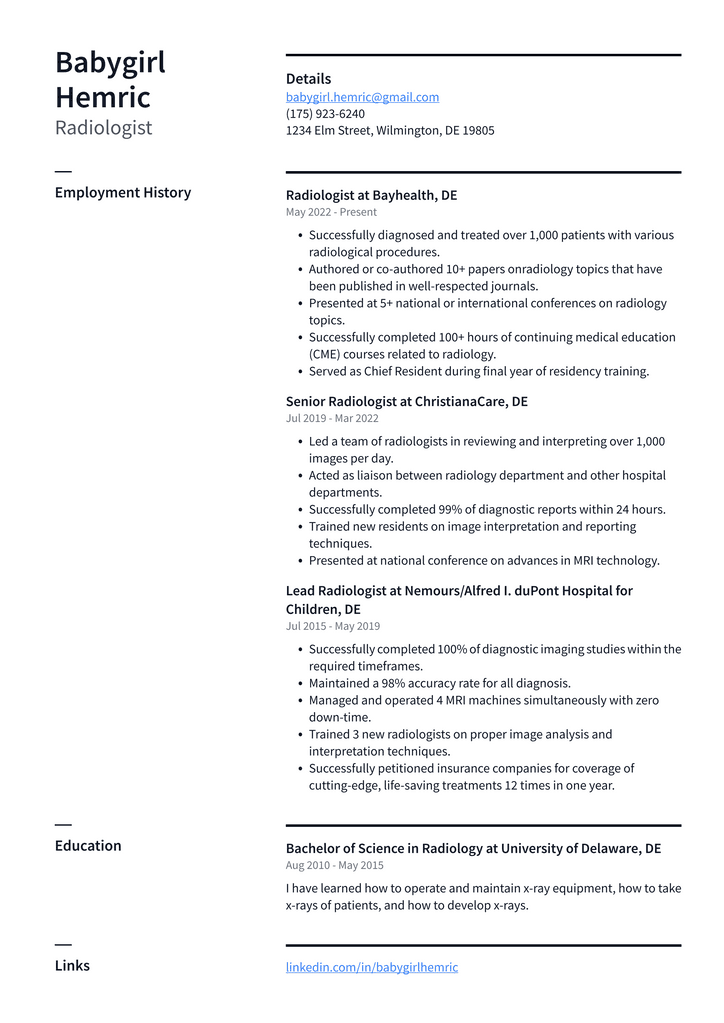
Download This Radiologist Resume as PDF
Psychiatrist Resume Example
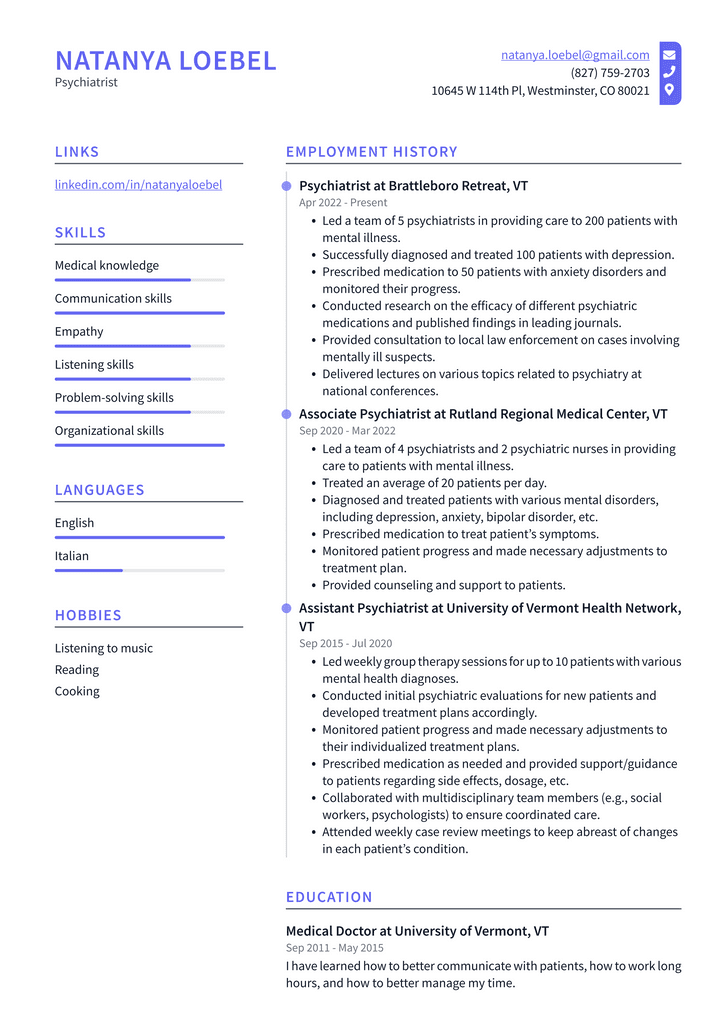
Download This Psychiatrist Resume as PDF
What to Include in Your Resume
Before you can begin writing a doctor’s resume example, you need to know what to include in your resume. Most resumes follow a similar format, outlining your education, experience, and any other qualifications you may have. Education – If you are a recent graduate, you’ll want to include your high school, undergraduate, and graduate education. You may only include your undergraduate and graduate education if you’re further along in your career. Experience – Include any work experience, relevant volunteer work, and extracurricular activities related to your desired field. Skills – Highlight technical skills and computer knowledge such as proficiency in specific software and languages. Hobbies – Include non-relevant skills and activities, like hobbies and sports, that demonstrate other aspects of your personality.
How to Write a Resume for Med School
If you’re applying to medical school, your resume will be very different from a resume for other healthcare-related positions. The best way to write a resume for med school is to keep it short and sweet. This is not the place to go into great detail about your skills and experience. The key to a great medical student resume example is to create a document that emphasizes your academic achievements and potential. Because the main application requirements are your GPA and MCAT score, your resume should feature these prominently. Again, the best way to write a resume for med school is to keep it short and sweet.
Resume Format for Physician Assistant School
If you are applying to physician assistant school, a physician assistant resume example will give you the best chance of being accepted. You’ll want to emphasize the skills you’ll gain from taking the course, such as the ability to work in a team and administer first aid. The key to an excellent physician assistant resume is creating a document that emphasizes your medical experience and potential. You should also include any certifications or licenses you have. The best way to write a resume for physician assistant school is to emphasize medical experience and potential.
Resume Format for Pharmacy School
If you’re interested in becoming a pharmacist, you’ll need to create a pharmacist resume example. This type of resume highlights the information on your undergraduate application. The best way to write a resume for pharmacy school is to create a document that focuses on your extracurricular activities and work experience. The key to a great pharmacy school resume example is to create a copy that emphasizes your extracurricular activities and work experience.
Resume Tips for Medical Students
If you’re currently pursuing a degree in medicine, there are a few things you need to keep in mind when writing your doctor’s resume example. First, stay focused on the present and not your future career. Focus on your current coursework and skills, not what you hope to accomplish in the future. Second, develop a clear and concise writing style. Medical writing differs from creative writing, so make sure you get your points across without going overboard. Lastly, provide examples of your work. You may have developed excellent skills and knowledge, but your resume must show this to potential employers.
Conclusion
If you are unsure about what to include in your resume, it may be a good idea to create a mock resume and look at sample resume examples to understand better what they look like. A fake overview is excellent because it allows you to experiment with different resume formats and see how they look. It also allows you to practice writing your resume, which can make the real thing seem much less daunting. If you need some more help with your resume, you can always check out online resume examples. These examples can help give you ideas about how to format your resume, how long it should be, and what to include in each section. They can also help you decide on the most critical information to include in your resume.